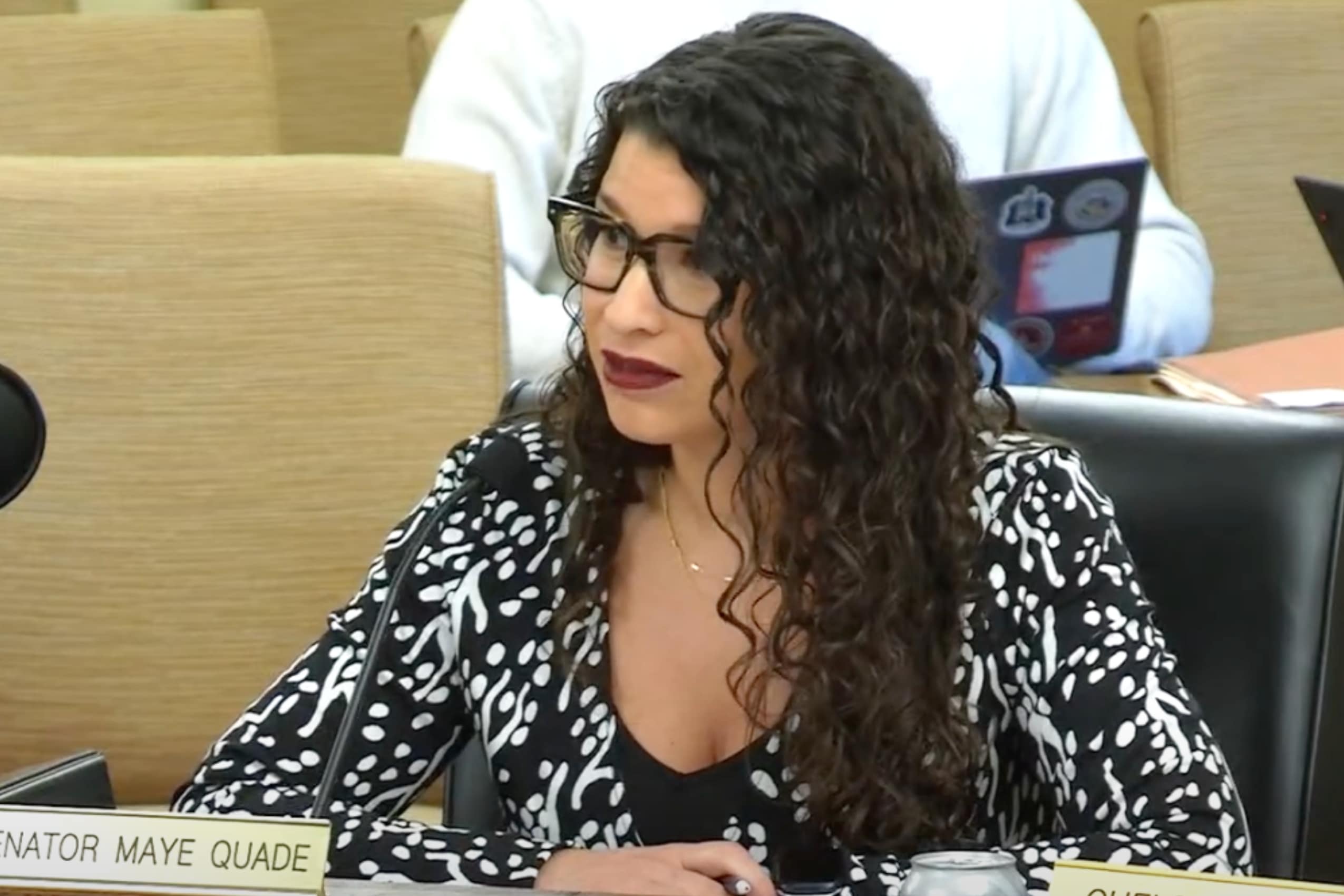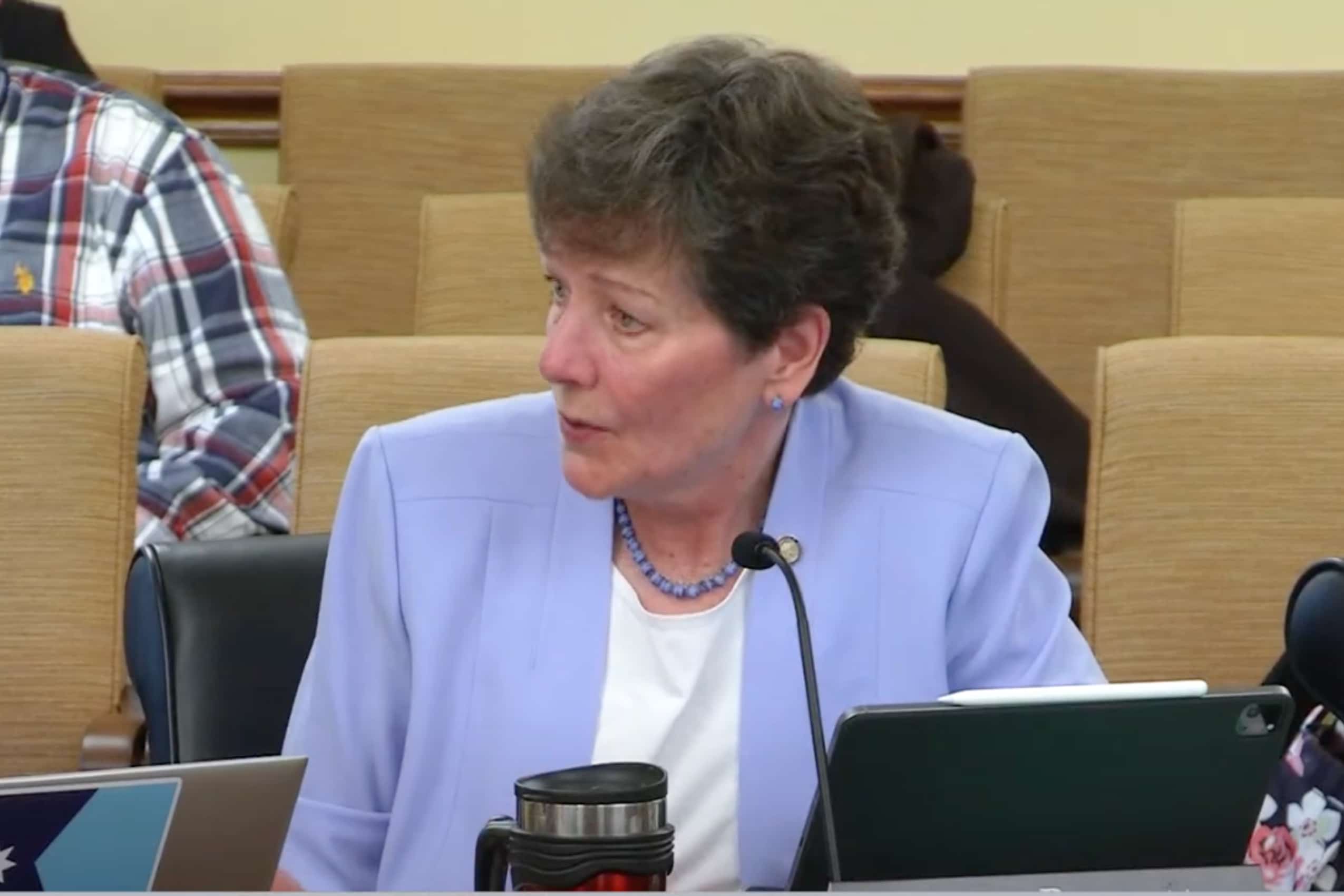
Gov. Tim Walz’s “ban on book bans” proposal lost a bit of its bite at the Minnesota legislature this week. But that didn’t come without some back-and-forth tense moments among legislators.
Republicans and DFLers in the House and Senate have debated in person and on social media in recent weeks the degree to which “book banning” in school libraries is a real problem facing communities across Minnesota. And Walz has made the topic a plank of his ever-expanding national political platform over the last year.
But during a conference committee hearing in the Senate on Monday, a representative for the Minnesota Department of Education told legislators the agency does not even have reliable data tracking instances of “book bans” or library content challenges.
“There is no central way for us as MDE to know at the moment how many of these book challenges have resulted in bans at the moment, except based on individual contacts or librarian contacts,” said Megan Arriola, a legislative coordinator for MDE, as she answered questions about the legislation during a conference hearing on the agency’s omnibus education policy bill.
Language restricts parameters for removing books from libraries
When the Senate passed SF3567 last month, the bill contained Walz’s “ban on book bans” provision that would prohibit school districts from “banning, removing, or otherwise restricting access to an otherwise age-appropriate book or other material selected according to a library materials policy based solely on the viewpoint, content, message, idea, or opinion conveyed, except for certain practical, pedagogical, or legal reasons.”
The “book banning prohibited” language also would require districts to place a licensed library media specialist in a position of sole authority for developing procedures for the selection and reconsideration of materials in school libraries.
But that provision was scaled back by a conference committee of the House and Senate on Monday to ensure local school boards still have authority on making those decisions.
The language that a committee of two Republicans and four DFLers adopted now would require a school board (and other governing bodies of public libraries) to “adopt a policy that establishes procedures for selection of, challenges to, and reconsideration of library materials in accordance with this section.”
It would also require a school board to produce a timely report to the commissioner of education on any “content challenge or reconsideration process” involving library materials.
Arriola told legislators during the Monday conference committee hearing that MDE has been working with a variety of “stakeholders” on the issue, including school board association members and librarians, to come up with modifications that “respect the governing body’s administration over their library in just a different manner than the original bill language.”

Those changes were amenable to Sen. Jim Abeler, R-Anoka, who said he was pleased that districts that already have such policies in place will be able to retain them.
Real problem or imagined distraction?
But Abeler contended the use of the term “book ban” in the legislation is part of a hyper-political effort to fit the governor’s established narrative on the issue.
“[When MDE staff] used the term banning, multiple times, in this bill, the statement of book banning is not a statement of policy, it’s a statement of politics,” Abeler said. “And we are listening to the governor going around saying we are banning book bans.”
Abeler was able to obtain support from his fellow conferees to delete “book bans prohibited” language in the title of the legislation and change it to “access to library materials and rights protected.”
But that wasn’t satisfactory to Sen. Erin Maye Quade, DFL-Apple Valley, who said she believes there “has been a concerted effort across this country to ban books, specifically books about people like me, and people like my family,” referencing people of color and those who identify as LGBTQ.
“If folks feel like [this legislation] is political it’s because the book banning that is happening is political and it has to stop,” said Maye Quade, who didn’t cite any examples. “And we have to make sure our libraries are places for people to access materials that are available to the public and stop with this hysteria about the existence of black and queer people in this country.”

During continued dialogue, Sen. Steve Cwodzinski, DFL-Eden Prairie, brought up Mein Kampf, the autobiographical manifesto written by Nazi leader Adolf Hitler, as an example of a book that may be perceived as unacceptable to have in libraries, but should not be banned without a clear policy established by local governing bodies.
“But in my head, I’m not sure even if Mein Kampf should be allowed, and I would say that is an idea that … are there ideas we don’t think are acceptable, but nonetheless, who are we to judge?” Cwodzinski said.
“I wish every single library would state underneath, whether it’s a school library or a public library, under the heading for the library, I would wish that they would put there, ‘the marketplace of ideas,’” Cwodzinski said. “Because that’s what I think our libraries are all about.”
Rep. Peggy Bennett, R-Albert Lea, said she believes the legislation is a distraction from an ongoing literacy crisis in Minnesota schools.
“My heart is actually breaking right now,” said Bennett, a retired elementary teacher. “We have kids in school right now sitting in their classes as we speak, and half of them cannot read at grade level, and this is a distraction. I follow the governor on social media, and this is what his focus is.”
Hank Long
Hank Long is a journalism and communications professional whose writing career includes coverage of the Minnesota legislature, city and county governments and the commercial real estate industry. Hank received his undergraduate degree at the University of Minnesota, where he studied journalism, and his law degree at the University of St. Thomas. The Minnesota native lives in the Twin Cities with his wife and four children. His dream is to be around when the Vikings win the Super Bowl.











